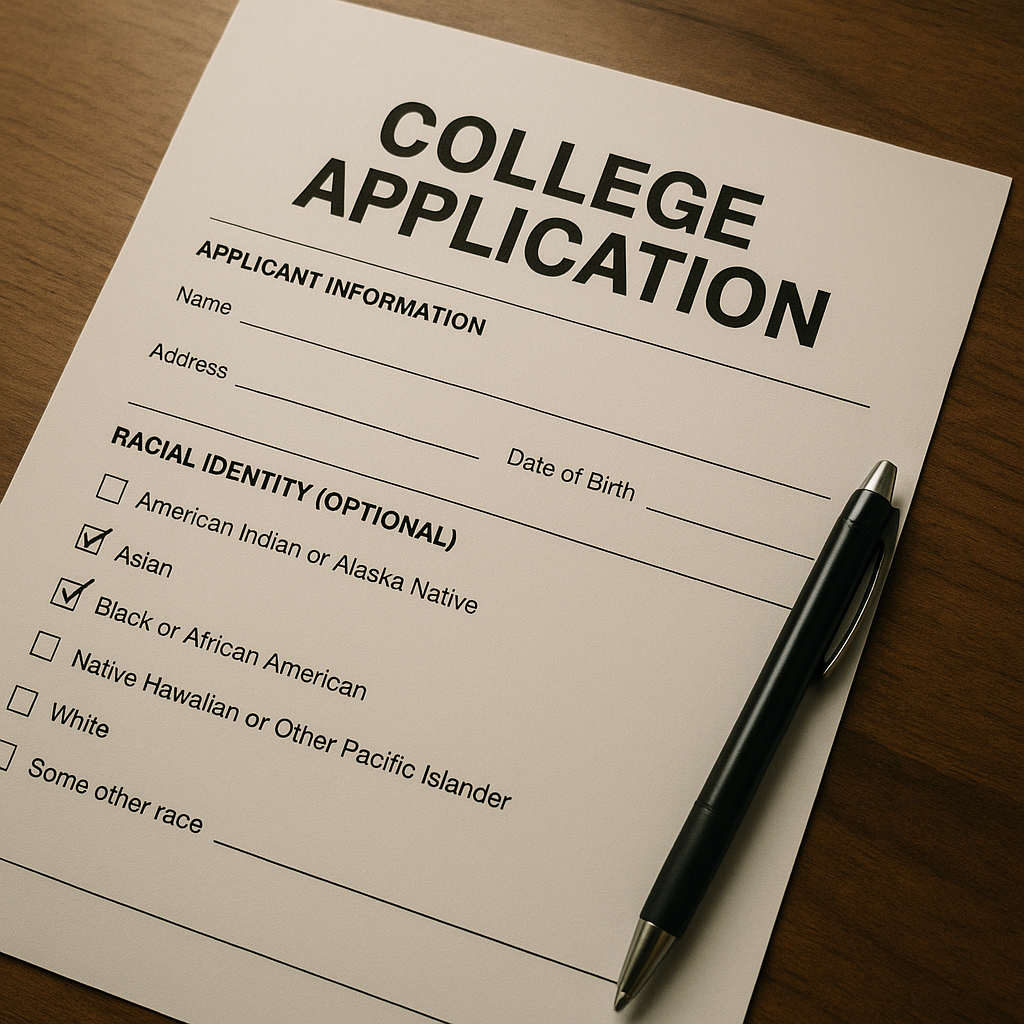Zohran Mamdani wants to be the next mayor of New York City. He’s young, progressive, ambitious, and now facing questions about how he racially identified on his college application back in 2009.
When applying to Columbia University, Mamdani marked both “Asian” and “Black or African American” for race.
NEW: Socialist Zohran Mamdani identified as Asian and ‘African American’ on his college application, according to the New York Times.
According to the NYT, Mamdani made the claim as a senior in high school in 2009 while applying to Columbia.
When asked about his race, Mamdani… pic.twitter.com/zUGNZZbzOn
— Collin Rugg (@CollinRugg) July 3, 2025
Mamdani was born in Uganda to Indian parents. Years later, he told the press he doesn’t identify as black. “I’m an American who was born in Africa,” he explained. Columbia didn’t admit him, and he went to Bowdoin College instead.
Still, the decision to check those boxes is now a headline.
Why? Because in 2009, affirmative action still played a major role in elite college admissions.
That’s no longer the case. The Supreme Court struck down race-based admissions in 2023, but the damage done to public trust is still fresh.
Critics are asking the obvious: Did Mamdani claim an identity he didn’t really hold to improve his odds?
Supporters offer a different take. They say it’s unfair to expect someone with such a mixed background to squeeze into narrow racial categories. Columbia’s forms didn’t have an option for “Indian-Ugandan,” after all.
Fair point. Still, if identity politics were a buffet, Mamdani seems to have gone back for seconds.
His explanation? He says he was trying to reflect the “fullness” of who he is. It’s a phrase that means everything and nothing, depending on who’s listening.
That might fly in a college essay, but it sounds a little more slippery when you’re running for the city’s top job.
The controversy surfaced after hackers breached Columbia’s admissions data. Mamdani’s application details were part of the leak.
Timing, as they say, is everything. This came just after Mamdani upset Andrew Cuomo in the Democratic mayoral primary, which raised his profile overnight.
His campaign platform includes ideas like rent freezes, free public buses, and universal childcare. It’s a long wish list, with a very short explanation of how to pay for it.
He calls himself a democratic socialist. His critics call him a dreamer on your dime.
Now, people aren’t just asking about policy. They’re asking who Mamdani really is.
In today’s political world, identity can be currency. For years, the left encouraged people to lead with labels.
Race, gender, heritage – it all became part of the resume.
To his credit, Mamdani hasn’t run from the issue. He’s said more than once that the checkboxes didn’t fit his identity well. He’s defended his choice as sincere, not strategic.
Maybe so. But politics isn’t scored on good intentions. It’s scored on how choices look under bright lights.
New York’s current mayor, Eric Adams, wasn’t impressed. He called the racial designation “deeply offensive” and demanded Columbia release Mamdani’s full application.
Social media lit up. Some compared Mamdani to Elizabeth Warren, who famously claimed Native American heritage based on family lore.
Others noted that being born in Africa doesn’t automatically make one African American, especially if you didn’t become a U.S. citizen until nearly a decade later.
There’s something serious beneath the noise. If identity is self-defined and unverifiable, then race-based preferences in college admissions were always open to abuse.
That’s not Mamdani’s fault alone, but it’s a problem the system helped create.
Now that the courts have ruled race-based admissions unconstitutional, the country has a chance to rethink how we do this.
Identity should matter, but it shouldn’t be a strategy.
As for Mamdani, he’s moving forward. He wants to talk about the cost of living, public transit, and housing.
Still, voters have a right to consider his past, especially when it reveals how political ambition and a culture of checkbox identity can collide.
This article was written with the assistance of AI. Please verify information and consult additional sources as needed.




